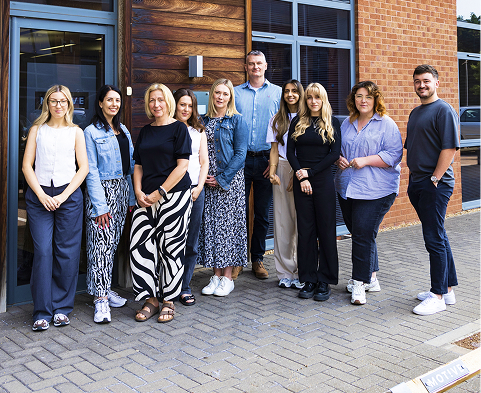Congratulations, your idea worked. Your press release was a journalist’s dream.
They were able to cut and paste it directly onto their media platform’s website. They literally published it word for word. Your client is going to be really happy about this. But wait a second… where’s the link? They’ve removed all the links you embedded. It’s a disaster. The client will be so disappointed. Darn that pesky journo. What are you going to do about it? What CAN be done about it?
These scenarios play out in PR teams around the world each and every day. PR and journalists enjoy a symbiotic, if at times testy, relationship. Each relies on the other for content and coverage. But sometimes the bonds which hold the relationship together can come under pressure. .
When I was a young newspaper journalist many moons ago (1990s) I remember very early on in my career being pitched a story by a PR professional. It was probably one of the very first PR stories I worked on. Unfortunately I don’t remember what the story was now (we are talking so long ago that it had arrived in my hands via the fax machine). But I can remember thinking, there’s a good story here but I don’t have to mention this client they keep referencing. I’ll just take the story, do a rewrite, and remove all mention of the client. Yes, that right, I was young and stupid.
Big Mistake
So that’s what I did and it went into the newspaper the next day (pre website days) with my name in big bold font above it. A couple of hours later I received a phone call from an irate PR woman who told me in no uncertain terms how the journalist / PR relationship works. I remember her asking me why she should ever give me a story ever again?
Turns out the client I had deleted had paid for the creation of that piece of content. Now the PR would have difficulty convincing them to pay for further stories to be created. If they were able to convince them then they certainly would not be passing them on to me in the future. I remember she named a newsroom colleague, a very well respected reporter, and told me they always were happy to name the client in stories so from now on they would be directing their releases to them. I would get nothing more. I tried to stand my ground but I quickly realised she was totally in the right and I had made a big mistake.
The good news is I was young and starting out in my news career. It’s ok to make mistakes as long as you learn from them right? And that incident taught me a massive lesson about how PRs and journalists work together.
That was around 25 years ago but the co-dependence relationship remains the same. If anything it’s stronger now than ever before. There are fewer journalists and they rely more heavily than ever before on submitted content. This has created huge opportunities for the PR sector, which is booming.
Digital PR
I have crossed to the other side of the desk and I’m now on the PR’s side. I have long forgotten the name of the PR woman who tore me off a strip but she was brilliant and I have huge respect for her.
Today though the expectations have shifted on the PR side and it’s no longer just about mentioning the client in an article, it’s also about linking to their website - hence the term Digital PR.
The problem seems to be a lag on the journalist side. Many media outlets still seem to think a mention of the client should be enough. But this no longer cuts the mustard in the digital world. Clients pay agencies to win online coverage and links. The links are all important. So can you force a journalist to add a link?
The short answer is no. Journalists don’t HAVE to do anything they don’t want to. They don’t even have to mention the client if they don’t want to. You’re not buying an advert where you can dictate terms.
Back in the 90s when I cut the client out the PR didn’t hesitate to put me in the picture about how I’d screwed up. Today we don’t use quite the same approach to asking for links. Instead we politely request they get added - and often they do.
Better still we create content which gives the journalist a compelling reason to link - often in the form of further information or data available to view on the client’s website.
The media are still trying to make the internet pay and some see links as adverts which should be bought. My theory is that over time links will become part of the expectation of coverage on both sides of the PR / journalist relationship and therefore will become easier to win, as long as the story is strong of course.
In conclusion and to be clear, I do not recommend calling journalists up on the phone and shouting at them for links. Although educating them gently about how the PR / media relationship works can be effective.


.jpg)
.webp)

.jpg)

.jpg)

